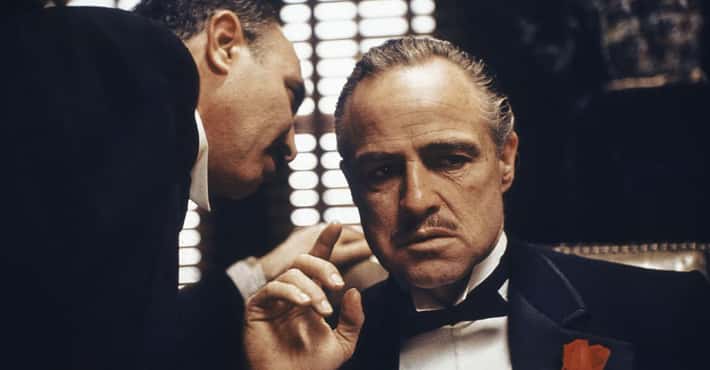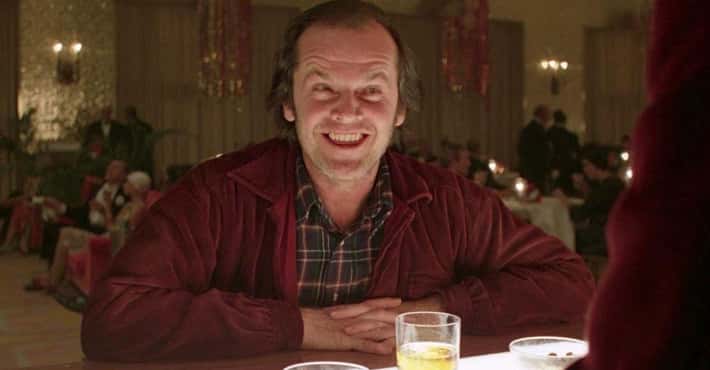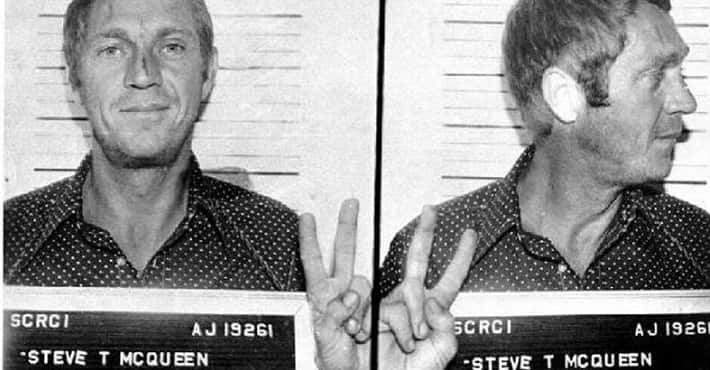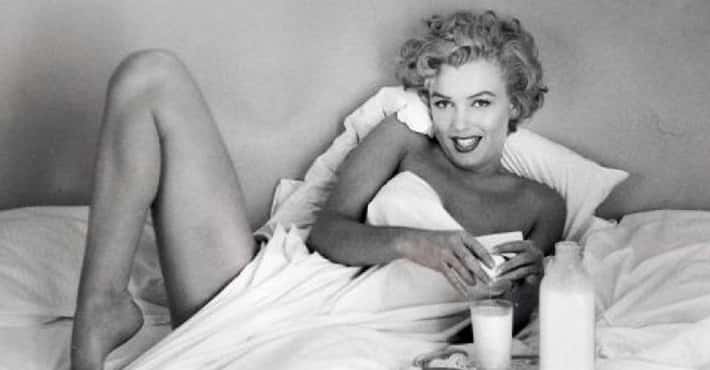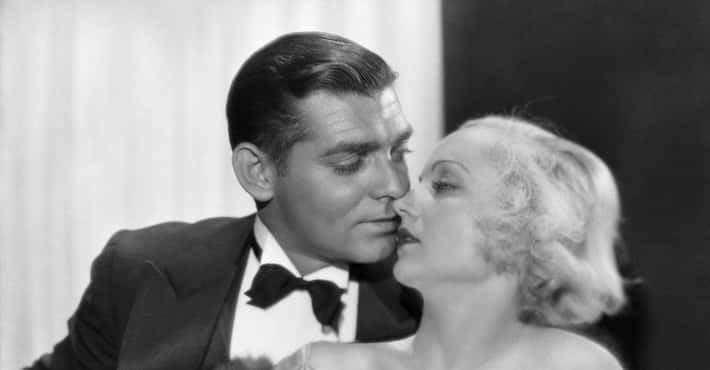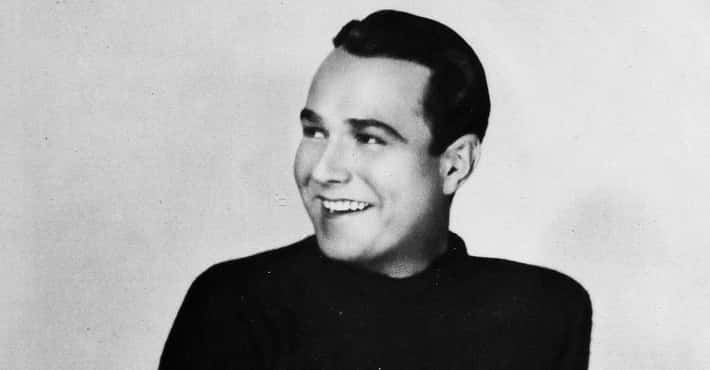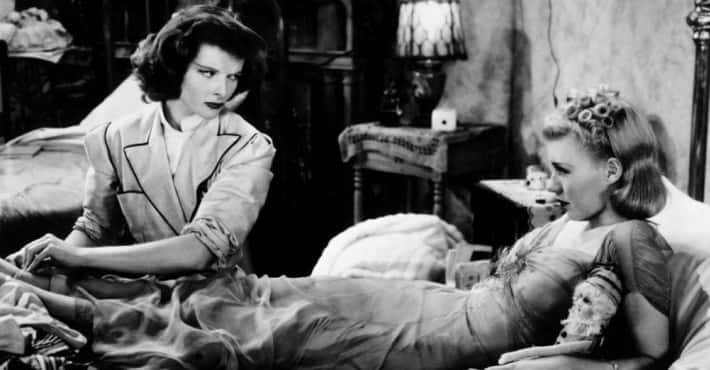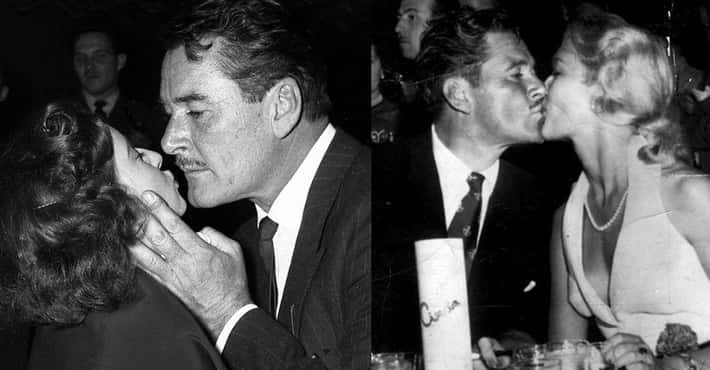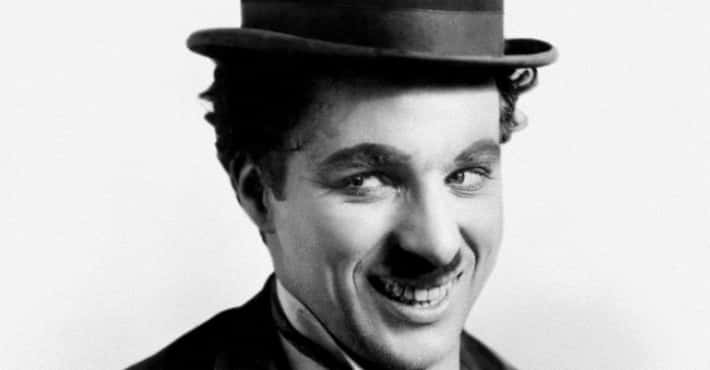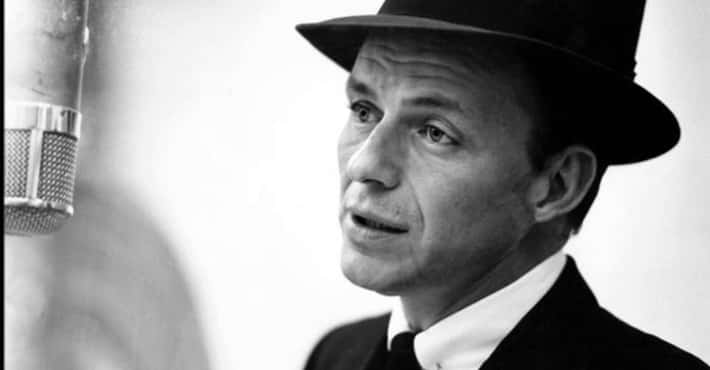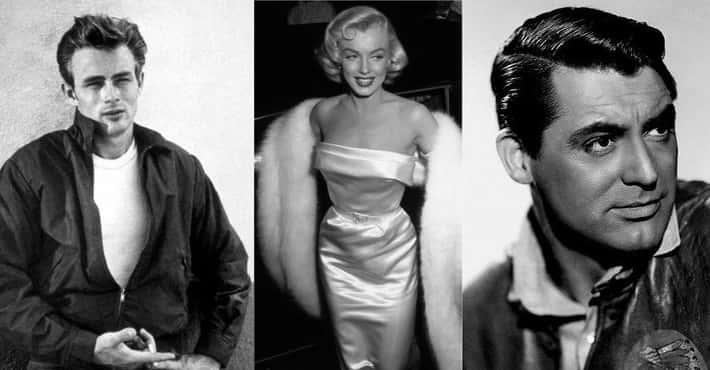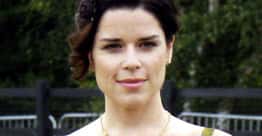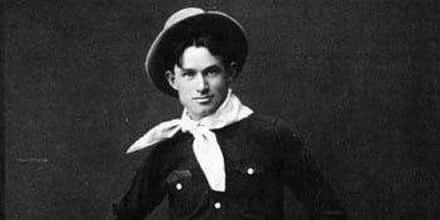
15 Gross and Shocking Facts About Howard Hughes's Many Obsessions
Vote up the most shocking facts about Howard Hughes.
The life of Howard Hughes had two sides. On one hand, Hughes had a brilliantly inventive mind, made immense contributions to aviation and motion pictures, and built brands that made him one of America's first billionaires. But any discussion of Hughes must also mention his reclusiveness, germ phobia, and obsessive-compulsive disorder. Hughes lived the American dream, and yet he reportedly died in poor physical condition. Still, he led an intriguing life that spawned numerous accounts of his eccentricities.
- 1236 VOTES
Howard Hughes Died A Drug-Ravaged Junkie
Photo: Library of Congress / Wikimedia Commons / No known restrictions on publication.On July 7, 1946, while personally test-piloting a Hughes Aircraft Company military prototype for the Air Force, Howard Hughes crashed into residential Beverly Hills. He broke many bones and suffered third-degree burns which required morphine during the healing process. His physicians then switched him to codeine, and Hughes never stopped taking the drug.
Hughes was also taking Valium, and after a fall left him with a pin in his hip, he never walked again. His physician stated that he had plenty of reasons to need pain management medication but still took too much.
Long-term drug abuse coupled with inadequate sustenance eventually resulted in kidney failure. This is what killed Hughes on April 5, 1976, at age 70. At the time of his death, his 6'4" frame had shrunk by several inches, and he only weighed around 90 pounds.
- 2216 VOTES
Howard Hughes Refused To Leave A Hotel, So He Bought It Instead
Photo: Las Vegas News Agency / Wikimedia Commons / Public DomainHoward Hughes did not like people telling him what to do. On Thanksgiving weekend 1966, Hughes rolled into Las Vegas in his two-car private train. He arrived at the Desert Inn Hotel, reportedly walking alongside a stretcher to avoid attention.
Eventually, Moe Dalitz, owner of the Desert Inn, personally asked Hughes to leave so that the hotel could prepare the top-floor suites for holiday high rollers. Instead of leaving, Hughes bought the hotel.
He went on to buy several other Las Vegas hotels, shaping the future of the Strip. He reportedly even bought a local TV station so he could indulge his insomnia with some late-night movies.
- 3260 VOTES
Howard Hughes Demanded His Employees Store His Urine In Containers
Photo: Acme Newspictures / Wikimedia Commons / Public DomainMany of Hughes's habits were unusual, but few stand out more than his alleged fixation on his own urine. In Howard Hughes: A Secret Life, Charles Higham describes the billionaire as being remarkably reckless with his aim around the toilet. Despite that, Hughes also reportedly urinated in jars, which he then kept. This practice was dramatized in the 2005 film The Aviator.
In 2012, several of Hughes's former business associates came forward to contradict these claims in the book We Knew Howard Hughes: A Collection of Memoirs. Concerning the urination stories, co-author Jim Whetton said, “He never did such a thing. The man was a recluse, period. That’s it.”
- 4270 VOTES
Hughes Was Obsessed With His Wife Even Though He Only Saw Her A Few Days A Year
Photo: Viva Zapata! / Wikimedia Commons / Public DomainDespite his apparent interest in women, Howard Hughes only officially married twice. His first wife, Ella, left Hughes in 1929 after four years of marriage. In 1957, Hughes married actress Jean Peters. Strange rumors persist to this day about their 14-year marriage.
Although Peters never spoke publicly about her relationship with Hughes, some strange stories eventually emerged. Even early on, when Hughes and Peters still occupied the same bedroom, she reportedly placed tissues between his toenails, which he refused to cut, so that their clicking would not wake her. Some even claim Hughes wouldn't let her shop, smoke, or vacuum.
Eventually, they reportedly only met for 20 minutes each day; by the last 10 years of the marriage, they saw one another only a few days a year. They spent part of their marriage living in separate Beverly Hills Hotel bungalows, communicating via telephone and memos that totaled 100,000 pages.
Hughes reportedly hired people to follow her wherever she went and report on her whereabouts. This may have continued after their divorce, when Hughes bought homes adjacent to hers. When Hughes died, Peters maintained her silence about the specifics but did say this:
I eventually realized that he was a sociopath, a man utterly incapable of understanding the needs of another person. He was very manipulative, even though he was just darling and charming at the same time. And even though he was affectionate in some ways and totally persuasive, it was a charade, I guess.
Before he died, Hughes sent Peters a final message telling her that he had always loved her - but it was delivered by one of his employees.
- 5288 VOTES
Howard Hughes Nearly Drove His Employees Crazy Over Ice Cream Flavors
Photo: Library of Congress / Wikimedia Commons / Public DomainOne of the most famous Howard Hughes stories involved a specific flavor of ice cream. Once Hughes decided to live at the Desert Inn full-time, his meals would be prepared in the hotel's kitchen and transported to him in his suite. Hughes especially liked Baskin-Robbins Banana Nut ice cream. For a long time, Hughes's personal assistants would buy this flavor in bulk, storing it in the hotel's freezers.
One day, when these employees went to buy more gallons of Banana Nut, they were stunned to find out that the company had discontinued the flavor. The frantic aides contacted Baskin-Robbins's main office and pleaded for them to sell them some more Banana Nut. Baskin-Robbins would only agree to manufacture its usual industrial-sized batch of a single flavor: 350 gallons.
Two Hughes employees were sent to LA in a refrigerated truck to pick up the order. Kitchen employees had to jam the ice cream into any available space in the hotel restaurant freezer, but finally, Hughes's employees breathed a sigh of relief. But, within days after the shipment of ice cream arrived, Hughes notified his personal assistant that he no longer wished to have Banana Nut ice cream; from now on he would like French Vanilla. It took the Desert Inn a year to get rid of all of the Banana Nut.
- 6224 VOTES
Robert Maheu Was Hughes's Right-Hand Man, Yet They Never Met Face-To-Face
Photo: SDASM Archives / Flickr / No known copyright restrictionsRobert Maheu was a former FBI agent who built a business performing covert operations around the world. Typically, he was retained when the US government or CIA wanted to keep certain clandestine activities at arm's length. Maheu was heavily involved in such enterprises as the Bay of Pigs and the recruitment of the American Mafia to kill Fidel Castro.
Howard Hughes initially retained Maheu in 1955 to investigate business rivals and romantic interests. Over time, Maheu became a major advisor to Hughes, especially when the billionaire began to buy up mob-controlled casinos on the Las Vegas Strip. It was up to Maheu to delicately remove underworld influence over Hughes's properties. Hughes would talk daily to Maheu for hours, send the man numerous memos, and entrusted him with the most sensitive negotiations.
In 1970, the two had a falling out. Maheu was fired, and Hughes left Las Vegas for good - you might think this was the last time the two saw each other. But, in the 15 years that Robert Maheu worked closely with Howard Hughes, the two had never met face to face.
- 7223 VOTES
Howard Hughes Was So Phobic Of Germs, He Covered His Bare Feet With Kleenex Boxes
Photo: SDASM Archives / Wikimedia Commons / No known restrictionsHoward Hughes's estate attorney had a psychological autopsy performed after his death. As Hughes left no will, they hoped to gain a legal record of his mental health in the face of numerous claims against his estate.
It was determined that, as a child, Hughes had been isolated and lacked friends. His mother constantly monitored his health, terrified that he would come down with polio. Hughes did experience a brief period of paralysis as an adolescent, but this condition (which had no medical basis) simply disappeared after a few months.
Hughes also showed symptoms of obsessive-compulsive disorder. As he grew older, he became increasingly worried about being exposed to germs from other people. He would insist that anyone serving him food cover their hands with paper towels, and he even wrote a manual for his employees on the proper procedure for serving canned peaches: first remove the label, then scrub the can thoroughly and wash it again, and finally pour the peaches - without letting the can touch the bowl.
Later in life, Hughes reportedly walked around with Kleenex boxes on his feet, which he believed offered protection from germs, and even incinerated clothing that came into contact with sick people.
- 8314 VOTES
Hughes Stayed In A Screening Room For 4 Months, Binge-Watching Movies
Photo: The Aviator / Warner Bros.Some believe many of Hughes's unusual personal habits manifested late in life, when he was overcome by addiction to codeine and physical and mental illness. However, an incident in the late 1940s suggested Hughes may have faced challenges long before he disappeared entirely from public life.
Hughes really enjoyed watching films; in fact, he so enjoyed this practice that he reportedly moved into a projection room he leased at Goldwyn Studios on Santa Monica Boulevard and began a marathon movie-watching session that lasted for four months. He would recline on a chair in the dark, sometimes naked, subsisting on milk, chocolate bars, and pecans. Hughes did not even stop for bathroom breaks, allegedly urinating into containers and bottles.
- 9194 VOTES
He Played His Favorite Movie On Loop Every Day For Months
Photo: Trailer Screenshot / Wikimedia Commons / Public DomainIce Station Zebra was a 1968 action-submarine thriller starring Rock Hudson, Ernest Borgnine, Patrick McGoohan, and Jim Brown. Although it did reasonably well at the box office and helped Rock Hudson's flagging career, the film was described in a review by Roger Ebert as "a dull, stupid movie."
Nevertheless, it was reportedly Howard Hughes's favorite. That probably isn't too surprising considering the film takes place in the sterile Arctic where there are no germs or IRS agents. The movie would be shown repeatedly on KLAS, the Vegas television station Hughes owned. In his autobiography My Way, musician Paul Anka wrote of Vegas, "We knew when Hughes was in town. You'd get back to your room, turn on the TV at 2 am, and the movie Ice Station Zebra would be playing. At 5 am, it would start all over again."
Hughes would evidently call the station and have them rewind to a certain scene if he wanted to see it again. In the final months of his life, his employees said the film ran through a projector on a seemingly never ending loop.
- 10170 VOTES
Howard Hughes Was Probably The Cause Of Richard Nixon's Downfall
Photo: Wikimedia Commons / Public DomainHughes once reportedly said, "There is no person in the world that I can't buy or destroy." He also apparently couldn't have cared less about party affiliation. Since his business dealings spanned many distinct industries, he donated to whichever politicians might be able to affect him in some way.
After Richard Nixon was elected President in 1968, Robert Maheu, Hughes's chief executive of Nevada operations, personally handed $100,000 to a friend of Nixon's. The money would be spent on fixing up Nixon's Key Biscayne home, meaning it was not a legitimate political contribution but a bribe and therefore illegal.
Through Maheu, Hughes also reportedly had Lawrence O'Brien, chairman of the Democratic National Committee, on his payroll as a Washington lobbyist. Maheu had worked closely with O'Brien, who in 1972 was tapped to run the Democratic presidential campaign.
The Nixon White House knew about O'Brien's ties to Hughes and reportedly feared that the Democrats would leak information about the $100,000 payoff during the election. When DNC offices at the Watergate Hotel were burgled by operatives connected to Nixon's re-election team on June 17, 1972, five men were arrested. It would take over two years, but the ensuing scandal would ultimately force Richard Nixon to resign.
- 11122 VOTES
A Con Artist Preyed On Hughes's Mental Illness In An Elaborate Fraud
Photo: Howard Hughes / Wikimedia Commons / Public DomainHoward Hughes was nobody's fool. Clifford Irving, a modestly successful writer who thought he could pull off a lucrative publishing hoax, found that out the hard way. In 1970, knowing that Howard Hughes had essentially withdrawn from public life, Irving decided to forge an allegedly ghost-written autobiography of Hughes and sell it to publishers McGraw-Hill.
Irving told McGraw-Hill that he had met with Hughes, showing them a supposedly hand-written letter, forging the billionaire's signature, and even passing a lie-detector test. After a forensic expert declared the handwriting authentic, Irving received checks for himself and "H.R. Hughes." His then-wife, Edith, deposited the Hughes check in a Swiss bank account opened in the name of "Helga R. Hughes."
Hughes was predictably livid when he heard of the impending book. Despite his reclusiveness, he held a conference call with several journalists to reveal that he had never met Irving and to call the book a fraud. He also sued Irving and McGraw-Hill.
When McGraw-Hill claimed it had cashed checks with Hughes's signature, the Swiss bank involved released information about the identity of "H.R. Hughes." Irving, his wife, and collaborator Richard Susskind were all found guilty of fraud and sentenced to jail time - but not before having to return the $765,000 advance.
- 12110 VOTES
Hughes's Massive Spruce Goose Flying Boat Only Flew One Time
Photo: FAA / Wikipedia Commons / Public DomainHoward Hughes was a remarkably inventive designer of aircraft and new technology. During World War II, Hughes and another designer, Henry J. Kaiser, came up with the design for the largest airplane ever built. Wary of the potential consumption of valuable steel, Hughes elected to build the plane out of laminated wood. Kaiser left the project, and only one prototype of the H-4 Hercules was finished - well after the war was over. Between this and another plane, the XF-11 (which Hughes crashed in Beverly Hills), tens of millions of dollars were spent without a single plane ever reaching combat.
Hughes was dragged in front of a Senate committee investigating waste in government defense spending and issued the following statement:
The Hercules was a monumental undertaking. It is the largest aircraft ever built It is over five stories tall with a wingspan longer than a football field. That's more than a city block. Now, I put the sweat of my life into this thing. I have my reputation all rolled up in it and I have stated several times that if it's a failure, I'll probably leave this country and never come back. And I mean it.
Hughes was especially miffed by charges that the H-4, popularly known as "the Spruce Goose," couldn't even fly. On November 2, 1947, in a heavily publicized test flight, he flew the plane successfully at a height of seventy feet for one mile. It never flew again. Today, it is stored in an aircraft museum in Oregon.
- 13122 VOTES
Hughes Would Go To Extreme Lengths To Avoid Paying Taxes
Photo: The Aviator / Warner Bros.Howard Hughes did not like paying taxes. One of the reasons reportedly Hughes became so interested in buying up huge tracts of land and trophy properties in Nevada was the state's low tax rates compared to California. Reports claim he only paid only $20,000 in annual income taxes.
Knowing he had no children, Hughes apparently disliked that much of his wealth could go to the federal government when he died. As a result, he founded the Howard Hughes Medical Institute, a tax-exempt charity The Institute promised to spend millions on medical research, but it was essentially a tax dodge, spending only $45,000 on research during its first year. Over time, that changed, as the forced sale of Hughes Aircraft to General Motors generated a huge cash windfall that had to be spent. At the same time, the organization was given a new board of directors, making it the most powerful biomedical research institute in the country at the time.
- 14106 VOTES
It Took Years To Settle Howard Hughes's Estate
Photo: Yuksel gurbuz / Wikimedia Commons / CC BY-SA 3.0When Hughes died in 1976, most observers were surprised that his inner circle claimed he died without a will. Based on the efforts Hughes reportedly made to avoid estate tax on Hughes Aircraft, such a development might seem out of character. Despite an exhaustive search, Hughes would eventually be declared to have died "intestate"; officially, without a will.
As Hughes had no children, his heirs were distant family members and business associates. Although Hughes Aircraft was not part of the estate, Hughes had numerous other business entities involving Las Vegas casinos, a TV station, an airline, and even the raw land that would ultimately be developed into the Las Vegas suburb of Summerlin, NV.
With no will, Hughes's estate was subjected to a seemingly endless stream of fake claims. One involved actress Terry Moore, who insisted that a yacht captain secretly married her to Hughes at sea, meaning she was Hughes's legally married widow. The estate reportedly settled for an undisclosed amount. Less successful was gas station attendant Melvin Dummar's claim that he once rescued the stranded billionaire and that Hughes gave him a handwritten will promising $156 million. Dummar's will has consistently been litigated to be a forgery, but some claim he may have been telling the truth.
- 15148 VOTES
Hughes Was Obsessed With Female Movie Stars
Photo: Jane Eyre trailer / Wikimedia Commons / Public DomainHoward Hughes was perhaps overly fond of female movie actresses. Some believe that one reason Hughes left the oil industry in Houston for the more volatile and risky business of motion picture production was his desire to meet and influence the biggest female stars in Hollywood.
The list of women associated with Hughes is long: Ava Gardner, Katharine Hepburn, Jean Harlow, Ginger Rogers, Lana Turner, and Susan Hayward to name just a few. (Jean Simmons also reportedly said no to Hughes, so he sabotaged her career.)
Dating Hughes doesn't sound like it was all that much fun, in any case. In a 1978 interview, actress Joan Fontaine said, "I was never in love with Howard. He had no humor, no sense of joy, no vivacity. Everything had to be a 'deal.'"


















